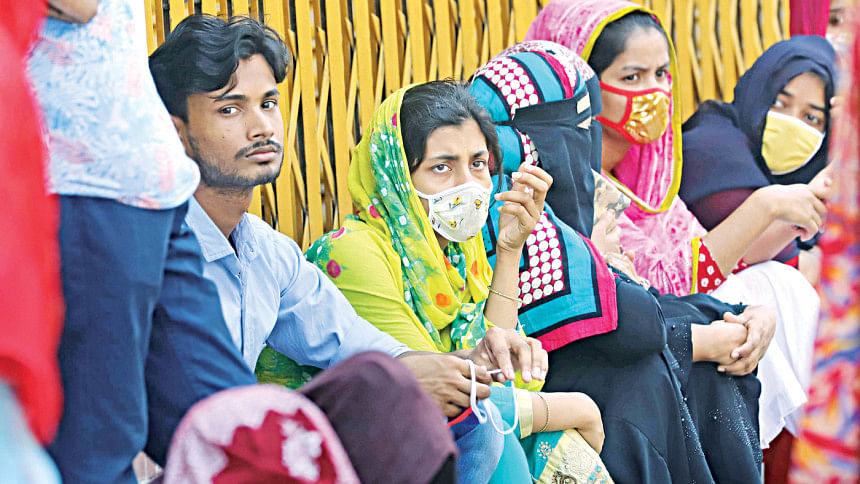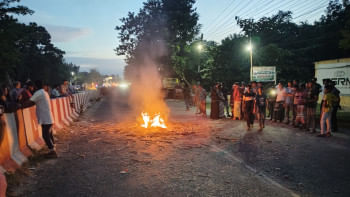Orders are finally trickling in, but garment factories are still reaching out for the axe

One has got to feel for the garment workers. Despite the availability of low-cost loans to pay wages, repeated requests from the labour ministry and a recent uptick in work orders from international buyers, they are getting the chop.
"So far, more than 25,000 workers have been fired although we have been suggesting the factory owners not sack them," said Shibnath Roy, inspector general of the Department of Inspection for Factories and Establishment (DIFE).
This month alone, another 1,000 workers lost employment, according to Amirul Haque Amin, president of the National Garment Workers Federation.
The actual number of workers who lost jobs in recent months is a lot higher than the estimate of the DIFE as many were not registered properly, he said.
"Firing workers at this critical time is inhumane. This is the time when the owners should stand beside the workers. Rather, they are firing workers," Amin said, while alleging that workers were not getting legal service benefits when they were fired.
Bangladesh's garment factories have been among the worst-hit as the coronavirus pandemic caused the demand for apparel items to collapse in Western markets, forcing them to shutter operations after the contagion hit the shores of the country in late March.
Both the labour ministry and the DIFE have already held several meetings with the representatives of garment factories and other stakeholders to discuss the issues of jobs and inflow of work orders.
"In every meeting, we asked the factory owners not to sack workers. But the firing in the garment sector has continued," Roy told The Daily Star by phone.
The laying off came although the government has given the factory owners a stimulus package to pay wages and salaries to the workers, the labour leader said.
On the eve of the countrywide shutdown, the government unveiled a Tk 5,000-crore emergency package for exporters to help them pay wages and salaries to workers.
However, the pace of laying off has started to drop off as the factories are receiving an increased amount of work orders after the opening up of stores in Europe and the US, the main destinations of Bangladesh's garment items.
Some workers at some medium and small-sized factories lost jobs, said Arshad Jamal Dipu, vice-president of the Bangladesh Garment Manufacturers and Exporters Association.
"We are urging the owners not to fire workers. We are telling them to wait for at least two months as the inflow of work orders is increasing," he said.
A good number of workers have come to the DIFE office to lodge complaints about the shutdown of factories, according to Roy.
Many factories employ 200 to 400 workers and these units are in big trouble as they do not have work orders and their financial strength is not strong.
"So, they are shutting down the units," Roy said. He, however, did not give an exact number of factories that have been closed.
Although the work orders are returning, the factories are not running at full capacity yet. The sector has more than 30 per cent shortage of work orders, he said.
Some 351 factories with a combined export value of $12.26 billion in the last fiscal year are running in full scale and there is no job loss in these units, the entrepreneur said.
There are 341 medium-sized factories with an export value of $4.1 billion. These factories are running at 60 per cent of their capacity and are trying to revive their business.
"Some workers lost jobs from these medium level garment factories," said the entrepreneur.
The number of small garment units is 642 with an export value of $2.86 billion. Three lakh workers are employed in these units.
"The small units are struggling to survive because of the lack of work orders. If 10 per cent of their workers lose jobs in this difficult time, it would not be surprising," Dipu added.
The inflow of work orders is expected to improve further from September.
"The tally of the fired workers will not be too high as no factory owner wants to lose skilled workers as workers matter at the end of the day," Dipu said.

 For all latest news, follow The Daily Star's Google News channel.
For all latest news, follow The Daily Star's Google News channel. 



Comments